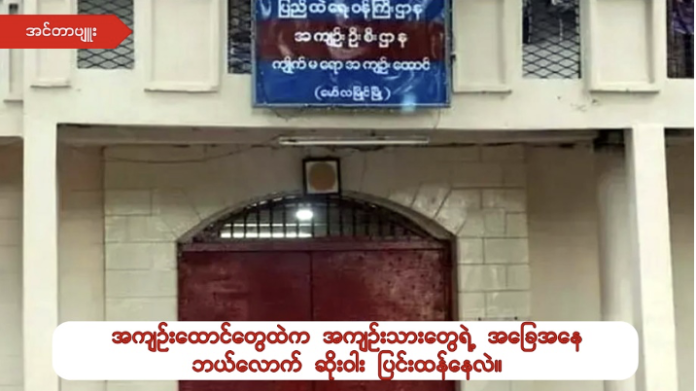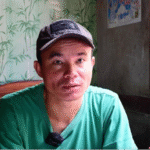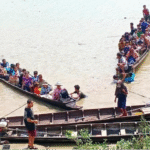An interview with Ko Thike Tun Oo, a leading committee member of the Political Prisoners Network-Myanmar (PPNM), about the oppression of political prisoners, the restrictions within prisons, and the plight of elderly inmates in prisons across the country.
Media coverage highlights that prisoners, particularly political prisoners, in Myanmar’s prisons are suffering from oppression and various forms of discrimination.
Among those arrested and imprisoned for various reasons since the 2021 military coup, the cruelty and oppression directed at political prisoners by prison authorities have reached their worst levels.
Than Lwin Times interviewed Ko Thike Tun Oo, a leading committee member of the PPNM, about the oppressive conditions prisoners are facing in jails across the country, the restrictions within the prisons, and the plight of elderly inmates.
Q: Can you provide an overview of the current conditions of oppression faced by prisoners in jails across the country?
A: This year, reports reveal that Myanmar’s Prisons Department has been involved in the intentional rape of male political prisoners, the sexual exploitation of LGBT political detainees, and has reportedly plotted their assassination. Meanwhile, female political prisoners have faced escalating brutality, with many deprived of sufficient nutrition, causing their immune systems to deteriorate and making them vulnerable to illness. Families are unable to send medicine, and the situation continues to deteriorate as the oppression intensifies.
Q: What kinds of oppression do prisoners, including political prisoners, face in prisons?
A: Prisoners are given insufficient water for bathing, with only a limited amount allocated by the prison authorities. They are denied meat curry on designated days and instead given cheap alternatives like chicken eggs. Portions of meat are also minimal. Prison authorities force all prisoners to perform labor, such as shelling peanuts and removing chili stalks, under contracts with external sources. This exploitation affects the majority of prisoners, who are being used for the benefit of the prison authorities.
Q: What kinds of challenges do prisoners face regarding food and living conditions in prison, aside from insufficient water and restricted access to medication?
A: Since the coup, the number of arrests has exceeded the official count. According to available records, the number of political prisoners has surpassed 25,000, with many more unlisted. More than 100 prisoners are being housed in rooms designed for only 50. Prisoners are forced to sleep in close quarters, leading to the spread of infections like ringworm, scabies, and itching. The limited water supply for bathing exacerbates these conditions. These health issues are a direct result of the prison authorities’ failure to provide medicine and the restrictions on medications. With proper and systematic medical care, the prevalence of these diseases could be significantly reduced.
Q: Due to limited access to prison visits and medication, figures like Dr. Zaw Myint Maung have lost their lives. What is the PPNM’s view on this?
A: According to the news we heard today, one political prisoner was killed. Prisoners are suffering from kidney diseases due to unclean drinking water. Those with chronic illnesses see their health deteriorate and often die because they do not receive proper medical care. In emergency situations, political prisoners, including Mandalay Region’s Chief Minister, have lost their lives due to the lack of timely treatment and access to healthcare outside the prison. If this situation continues, it will be tragic for political prisoners who die in prison, unable to return to their families, and for those who wait for their loved ones to be released when the revolution succeeds. I urge the prison department to take immediate action regarding the need for medical care within the prisons. Until positive and constructive steps are taken, we can only expect the number of deaths in prisons to continue rising.
Q: What is the impact of these restrictions and oppression on the health and life-threatening situation of elderly political prisoners?
A: Even young and middle-aged prisoners are dying in prison due to inadequate healthcare. There are many elderly political prisoners, including State Counselor Daw Aung San Suu Kyi. This year has been particularly concerning for elderly political prisoners, as even younger detainees have died due to a lack of medical care in prison, which weakens the immune systems of all prisoners.
Q: Finally, what is the situation of female political prisoners who are facing oppression similar to that of male prisoners?
A. I would like to highlight that, as the revolution persists, the number of prisoner deaths inside the prisons—especially among elderly prisoners—has been steadily rising.
Sent by Than Lwin Times



